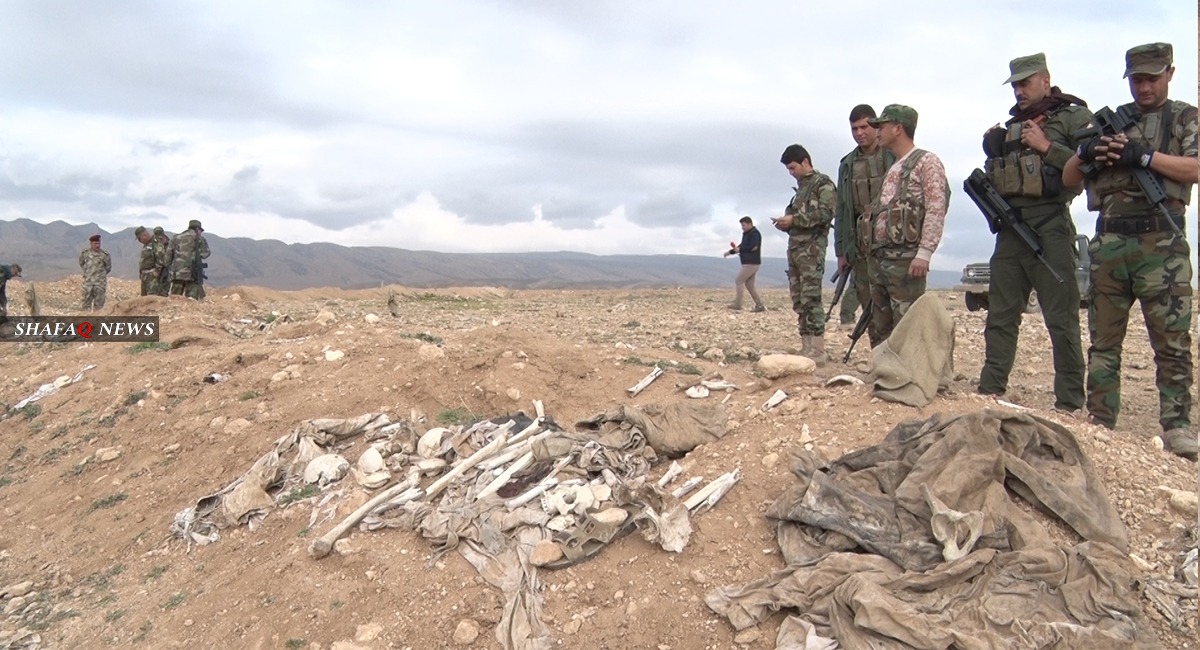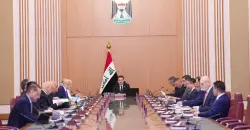DW: In Iraq, sectarian prejudice goes beyond the grave

Shafaq News/ The "Islamic State" group is gone but many of their Iraqi victims are still missing. They may well be buried in mass graves the extremists left. But critics say exhumations are too slow, and possibly politically biased.
"My brother was arrested by Daesh," explained Abdullah Ramadan Mohammed, using the colloquial name of the extremist group known as the "Islamic State."
Mohammed lives in the central Iraqi city of Hawija and his brother had worked for the Iraqi government. The extremists accused him of spying when they took over the city by force in early summer 2014. "That was such nonsense," Mohammed told DW.
But after the nighttime arrest, his brother disappeared. Mohammed tried for months to get information, visiting different prisons run by the "Islamic State", or IS, group, but he found out nothing.
By the end of 2017, the Iraqi army had pushed the IS group out of Hawija but Mohammed's brother had still not been found. "And now there is nobody left here who I can ask," Mohammed sighed. "I won't forget him ever. But what can I do?"
The Hawija man is just one of thousands of people in the city who is still looking for a family member taken away by the militant group, during the three years it managed to control the area here. By the time the IS group left Hawija, the city counted around 7,000 dead and 5,000 missing persons.
Unfortunately, it seems increasingly likely that his brother's body is in one of the mass graves near the city. But Mohammed and his family will have to wait to find out if it is, or not.
For now, the Iraqi government's Mass Graves Directorate, or MGD, which is tasked with identifying the remains found in large burial sites, has only scheduled the exhumation of graves at a location at the foot of the Hamrin mountains in northeastern Iraq. This is supposedly where Yazidi women who tried to escape the IS group and were killed, are buried.
The United Nations said that over 200 mass graves linked to IS have been found in Iraq to date, which may well contain as many as 12,000 bodies.
Slow progress with exhumations
Dia Karim Saidi, head of the MGD, explained that so far his team has only managed to exhume sites at 29 out of the 114 locations where victims of IS are known to be buried.
Some locations have several mass graves, Saidi explained, and in the 81 communal graves found at those 29 sites, the remains of around 3,000 people were collected. The MGD also works with investigators at UNITAD, the UN's Investigative Team to Promote Accountability for Crimes Committed by the IS group, and the International Commission of Missing Persons, or ICMP.
Most of those exhumed graves contained bodies of Yazidis, the ethno-religious minority that the IS group has been accused of committing genocide against. They are mostly located in the northern Iraqi province of Sinjar, the traditional Yazidi homeland. Many of those remains have been identified and some given a ceremonial burial.
Back in Hawija, family members of those still missing complain that the Yazidi graves have been prioritized.
The MGD's director Said blamed finances. His team has only 45 members and lacks resources. "We need the UNITAD and ICMP funding to be able to work," he said, implying that the UN organizations decided which mass graves receive priority.
However, ICMP spokesperson Dima Babili denies this is how it works. "It is the local authorities that set the agenda for conducting excavations," she said.
"Our goal is to help Iraq create a sustainable process to find all of its missing persons, regardless of their background, when they disappeared or the circumstances of their disappearance."
History of mass burials
The Iraqis must also deal with a long-standing backlog. Former Iraqi dictator Saddam Hussein was responsible for mass graves at 98 locations in the country, 22 of which are yet to be exhumed. According to the International Committee of the Red Cross, Iraq has the highest number of missing persons in the world, somewhere between a quarter of a million and a million.
Additionally, the MGD team often cannot do planned work for various reasons — for example, the weather prevents it or small cells of IS group members are still active in an area and it is simply too dangerous.
At his family home in Hawija, local tribal leader Ahmed al-Muhairi explains how paralyzing it is not to know what happened to missing relatives. His father and uncles are still missing.
"The family still hopes they will return," he said. But he thinks the chance of this happening is almost zero. "Therefore we cannot openly discuss what happened with them. It has become taboo."
Because his father was a community leader, his body is unlikely to be in a mass grave and al-Muhairi fears his relatives may never be found.
He has asked various government departments but he doesn't think anybody cares much. "They prefer to forget what happened," he argued. This is despite the fact that almost as many Hawija locals were kidnapped and killed as Yazidis, he pointed out.
"Our whole town is stigmatized," al-Muhairi said. He is referring to the fact that IS group based its rules and behavior on an extremist version of Sunni Islam. Most of the inhabitants of Hawija were Sunni Muslims and some initially saw the IS' rise as a way to become more powerful themselves.
Many quickly realized that they were mistaken but by then they had no choice but to live under the extremists' control. Although it is barely acknowledged in Iraq, many Sunni Muslims were also punished and killed by IS.
Many of the mass graves that have not been investigated are located in Sunni areas previously occupied by the IS group. Critics say these don't seem to be a priority for the Iraqi government which was, until recently, dominated by Shiite Muslim politicians.
Meanwhile, the mass graves likely containing Shiite Muslim victims have been exhumed, they argued. The exception is a mass grave containing over 200 members of the Sunni Muslim tribe, Al Bu Nimr, in the Anbar province. It was exhumed last October with help from UNITAD. The IS group had killed the tribe's members for resisting it.
The long wait for a final answer has consequences for victims' families. For example, Mohammed's sister-in-law has returned to her parents' home with the couple's children — but she is still waiting for a widow's pension, something she cannot get from the government until she has proof of her husband's death.
"There are hundreds, if not thousands, of families with missing members," the governor of Ninawa province, Najm Jibouri, said recently. Ninawa's provincial capital, Mosul, was the IS group's base in Iraq and also has mass burial sites. Jibouri wants more international help investigating them..
"They [the survivors] continue to worry and that is why we must promptly identify all the corpses in those mass graves," he concluded.
(DW)





